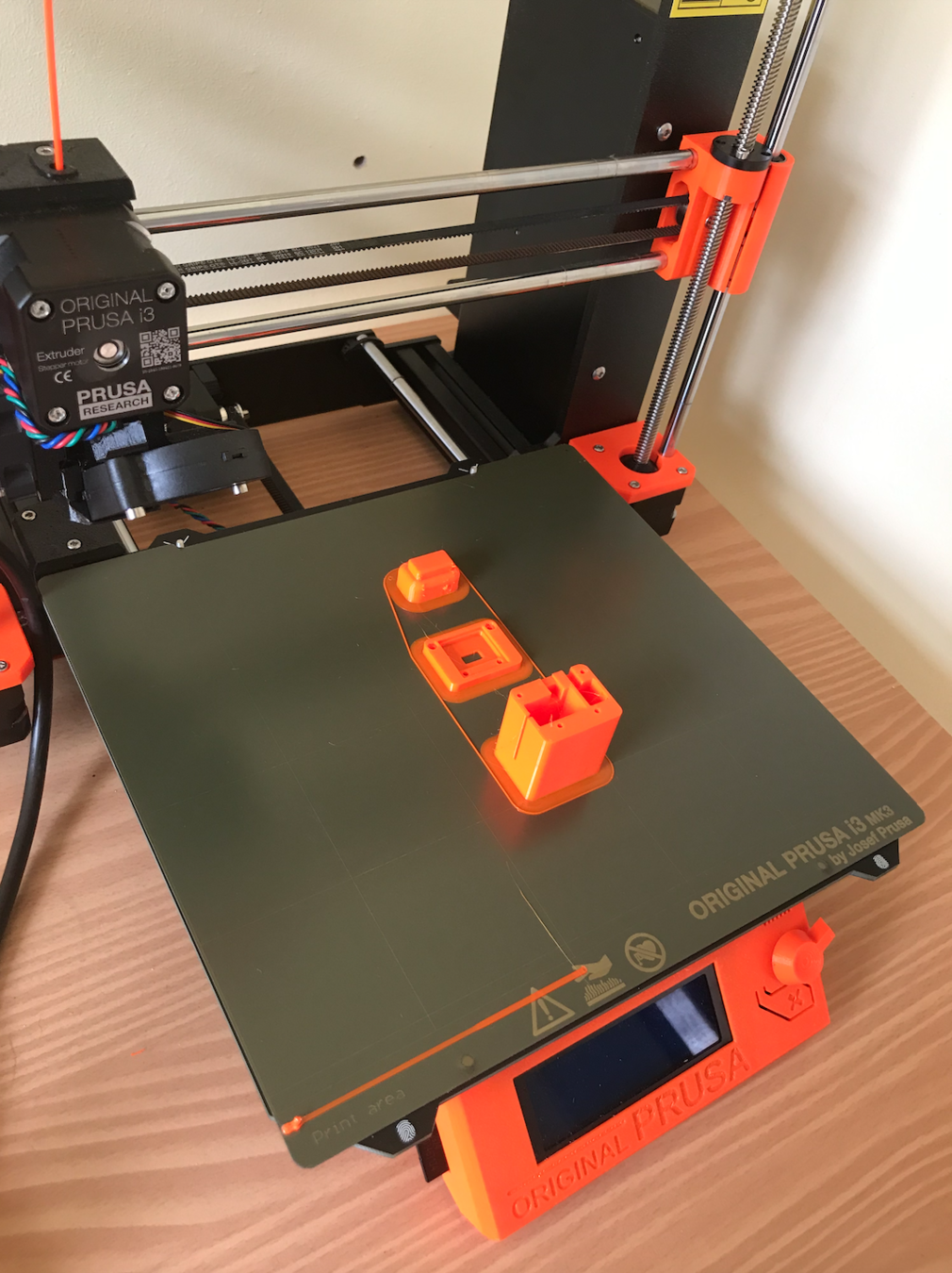
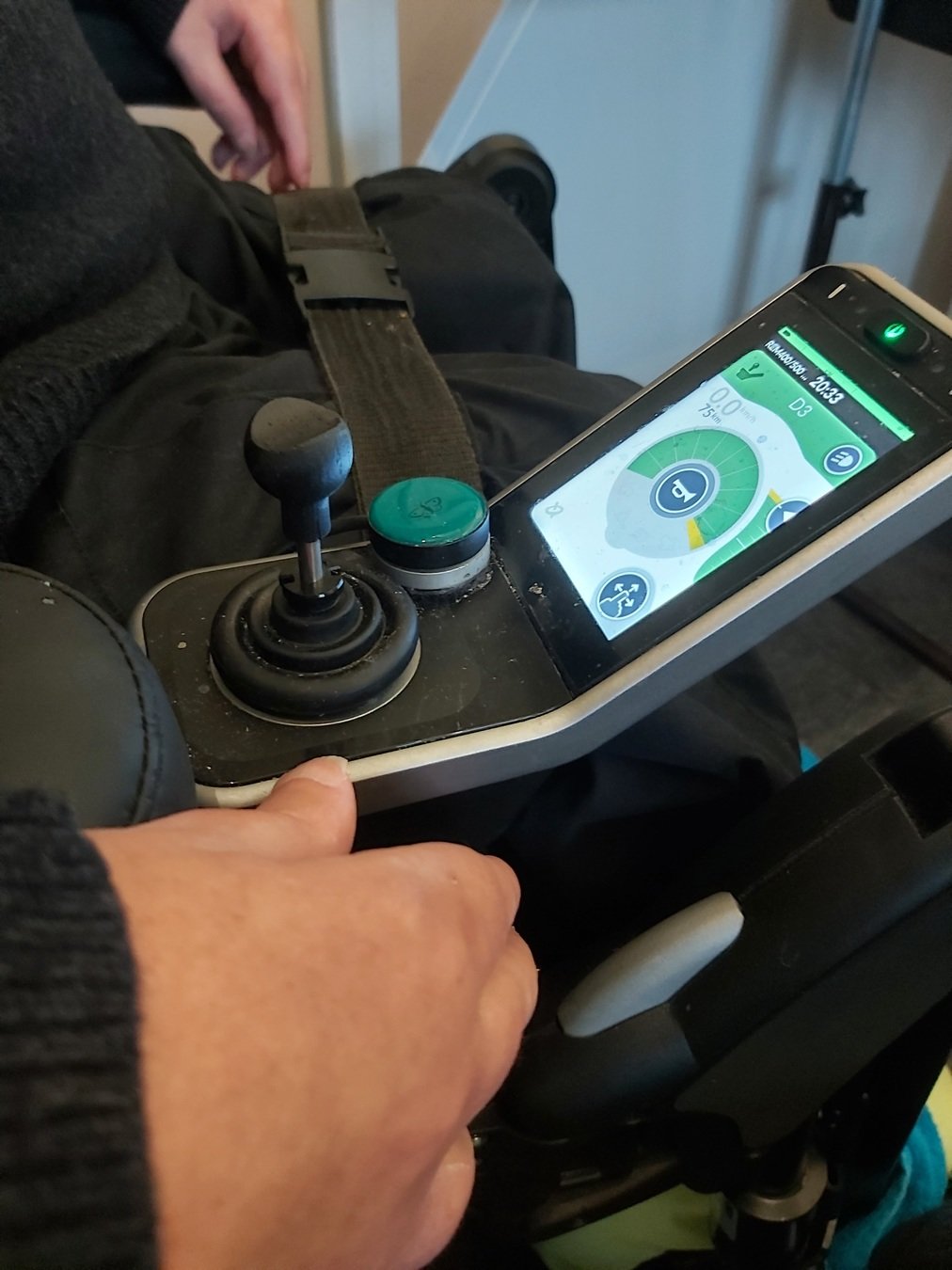
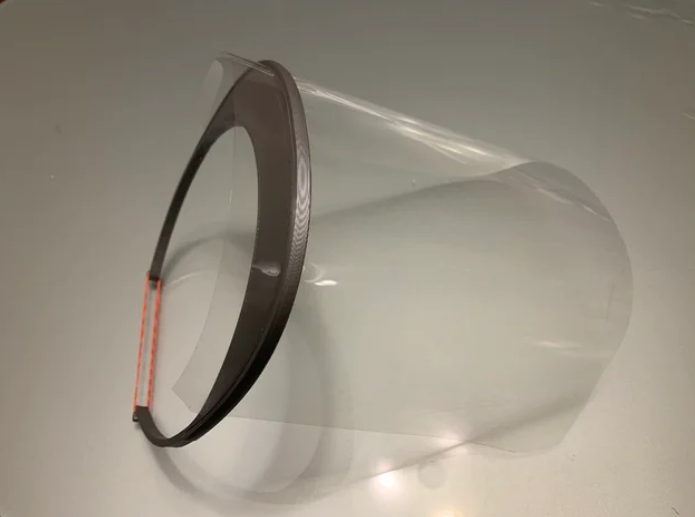
NMC3DPrintClub:
Caring through Printing
It's been nearly 4 years since
we borrowed an Ultimaker 3D printer from DoESLiverpool a makerspace in Liverpool to run a workshop
Getting Started
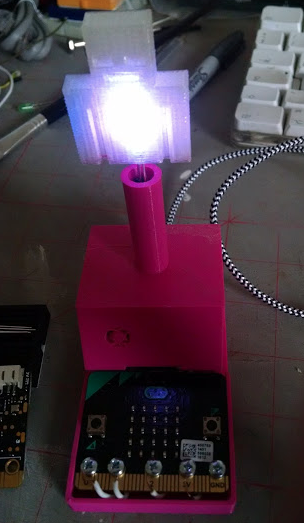
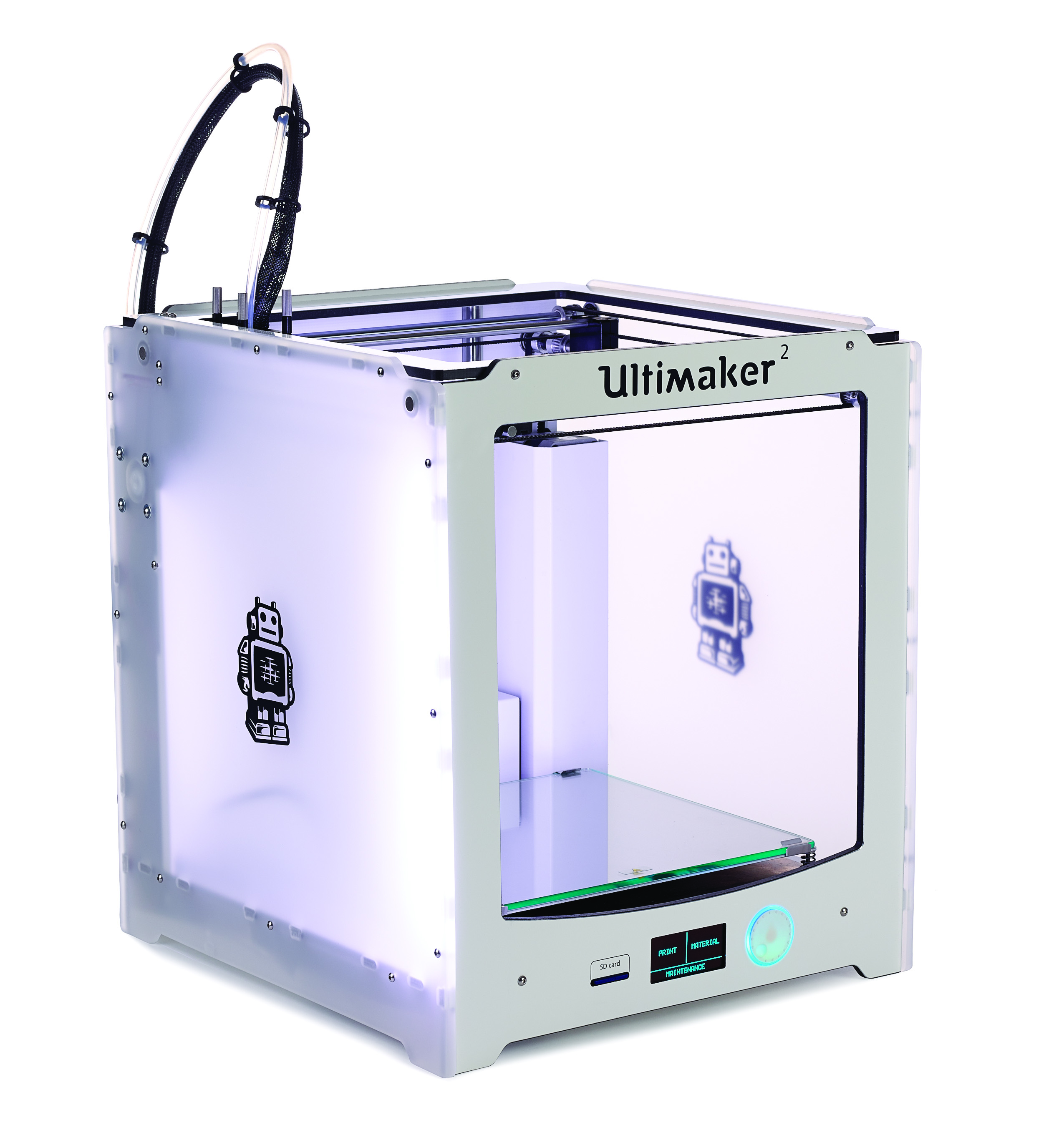
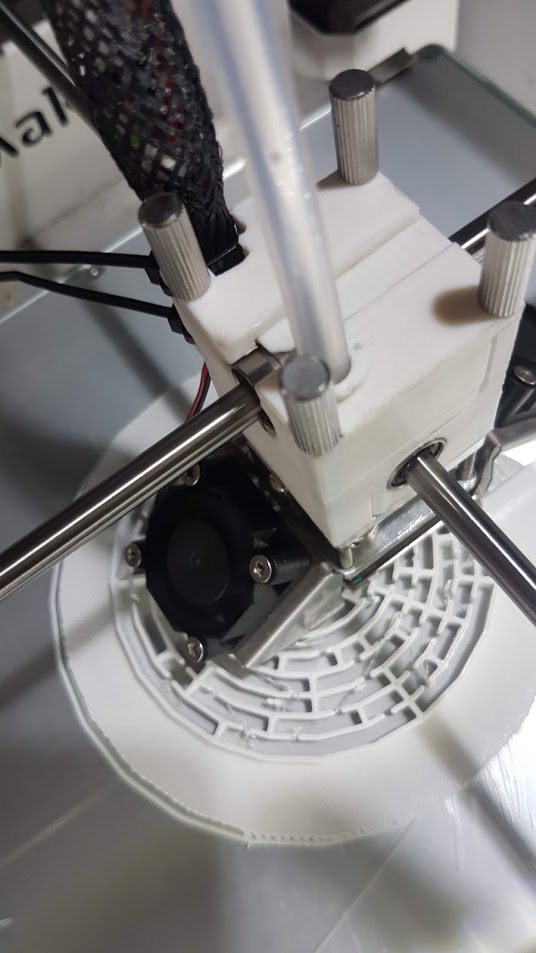
Thanks to the efforts of the fundraising team and some kindness & generosity, we've had a Prusa maintained and run by Kay for quite a while.
Since then people who came to the first event have met every Tuesday morning by video to design and discuss 3D printing
Here it is in the centre being used to print a prototype PCR testing machine
The NMC Prusa Printer

Print Queue
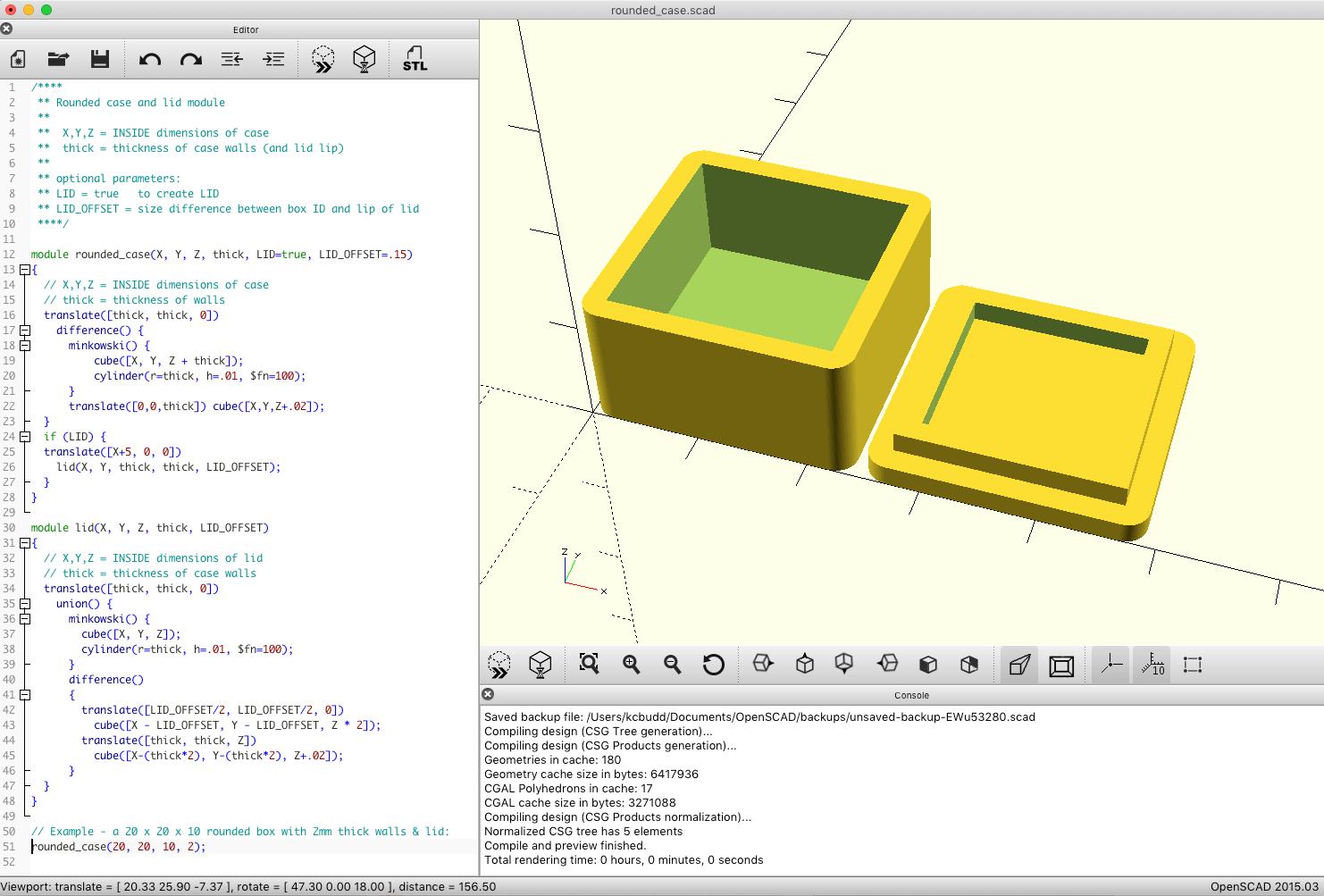
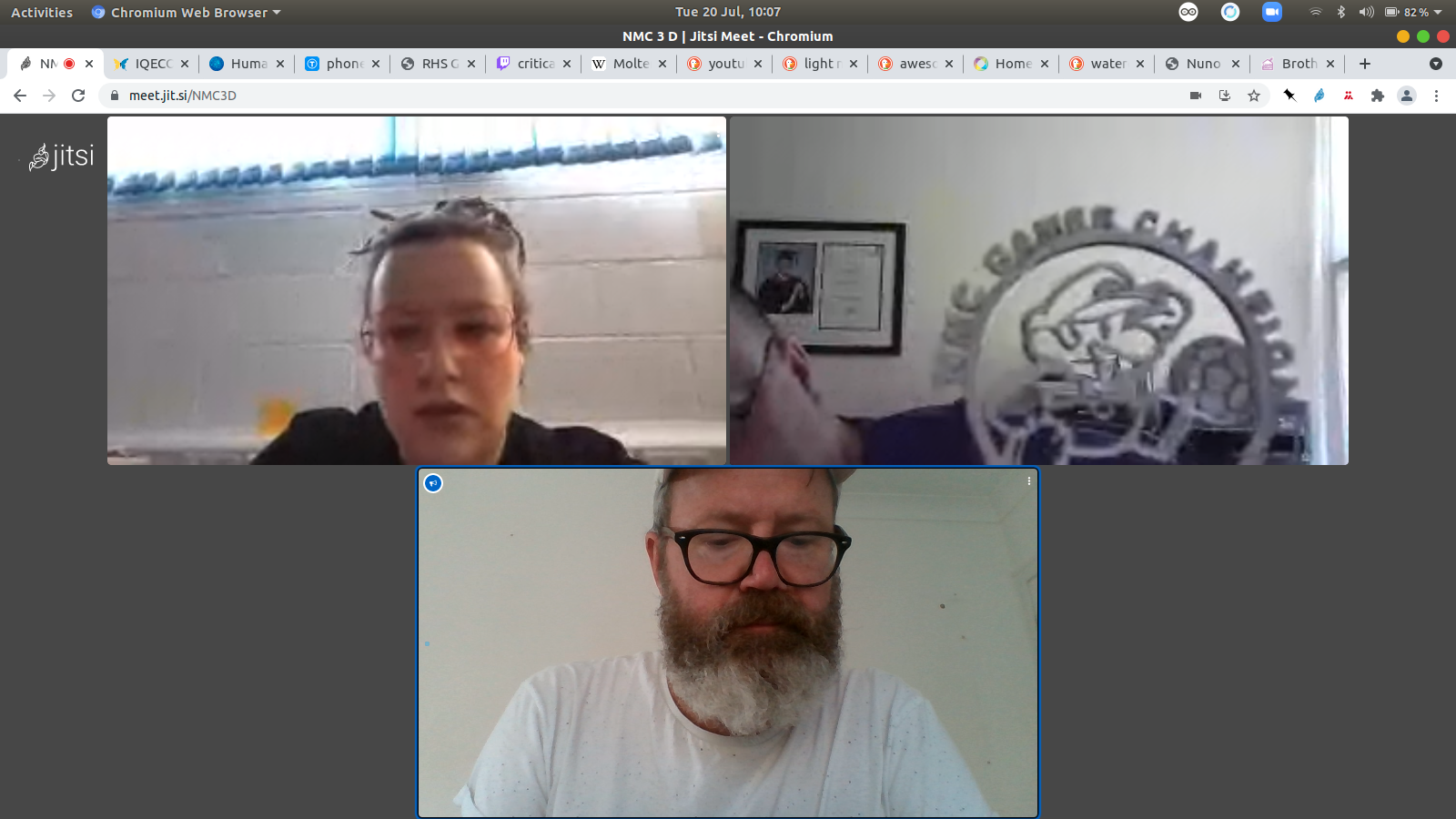
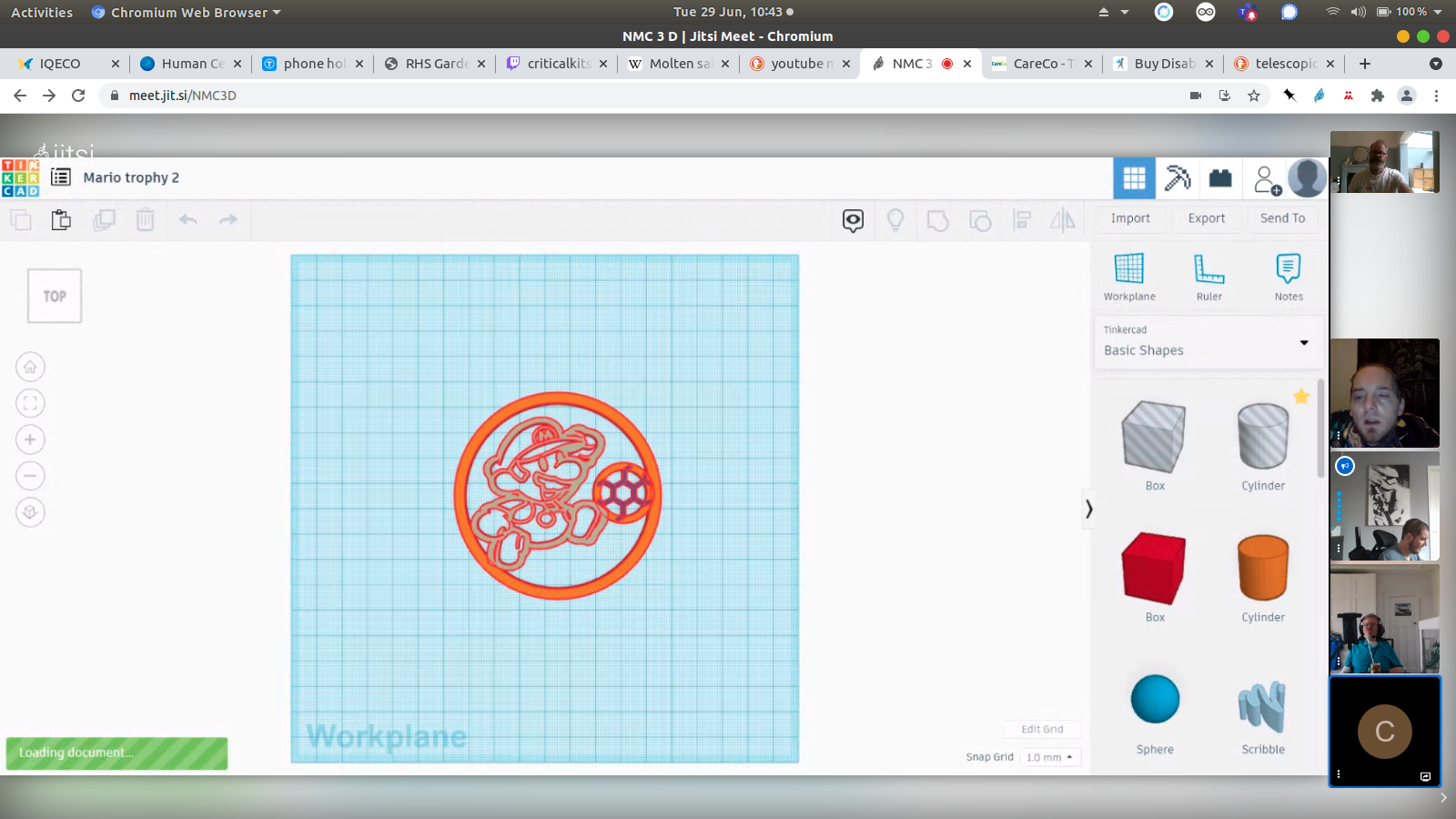
Making DIY PPE
Inspired by DoES Liverpool's efforts making PPE face shields we used this simple design.
It took a good deal of time consulting with people at DoES and thinking about logistics, design and safety before we settled on this design - and much collaborative work to think about how it might be used by the NMC community
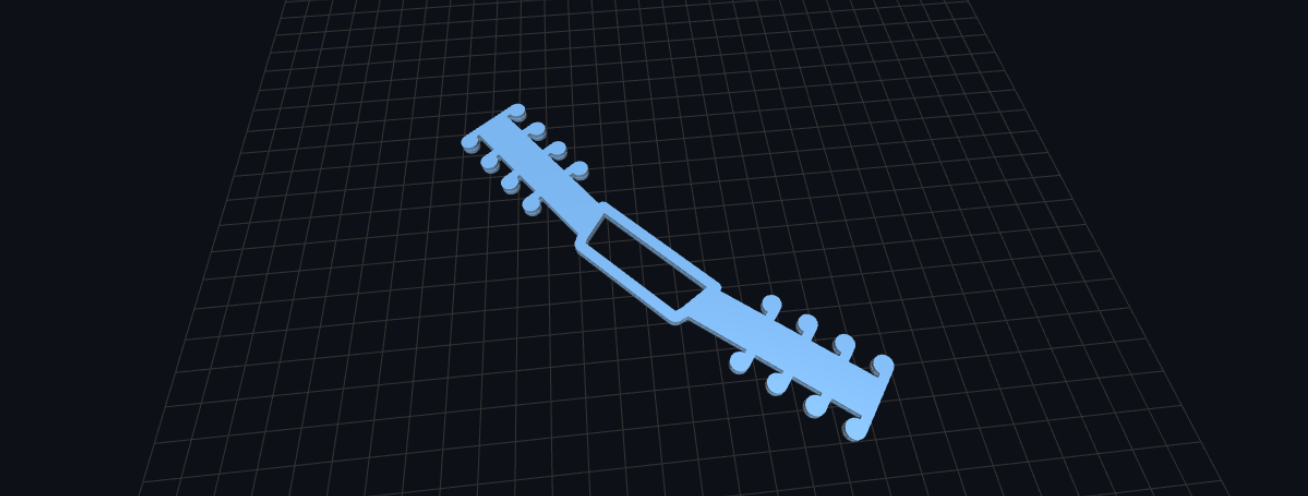
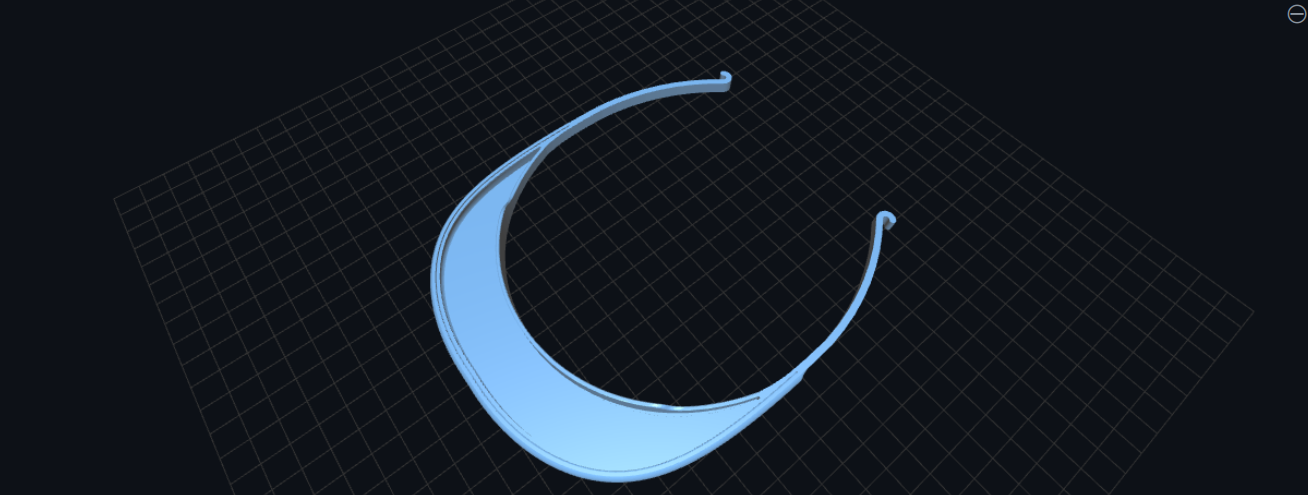
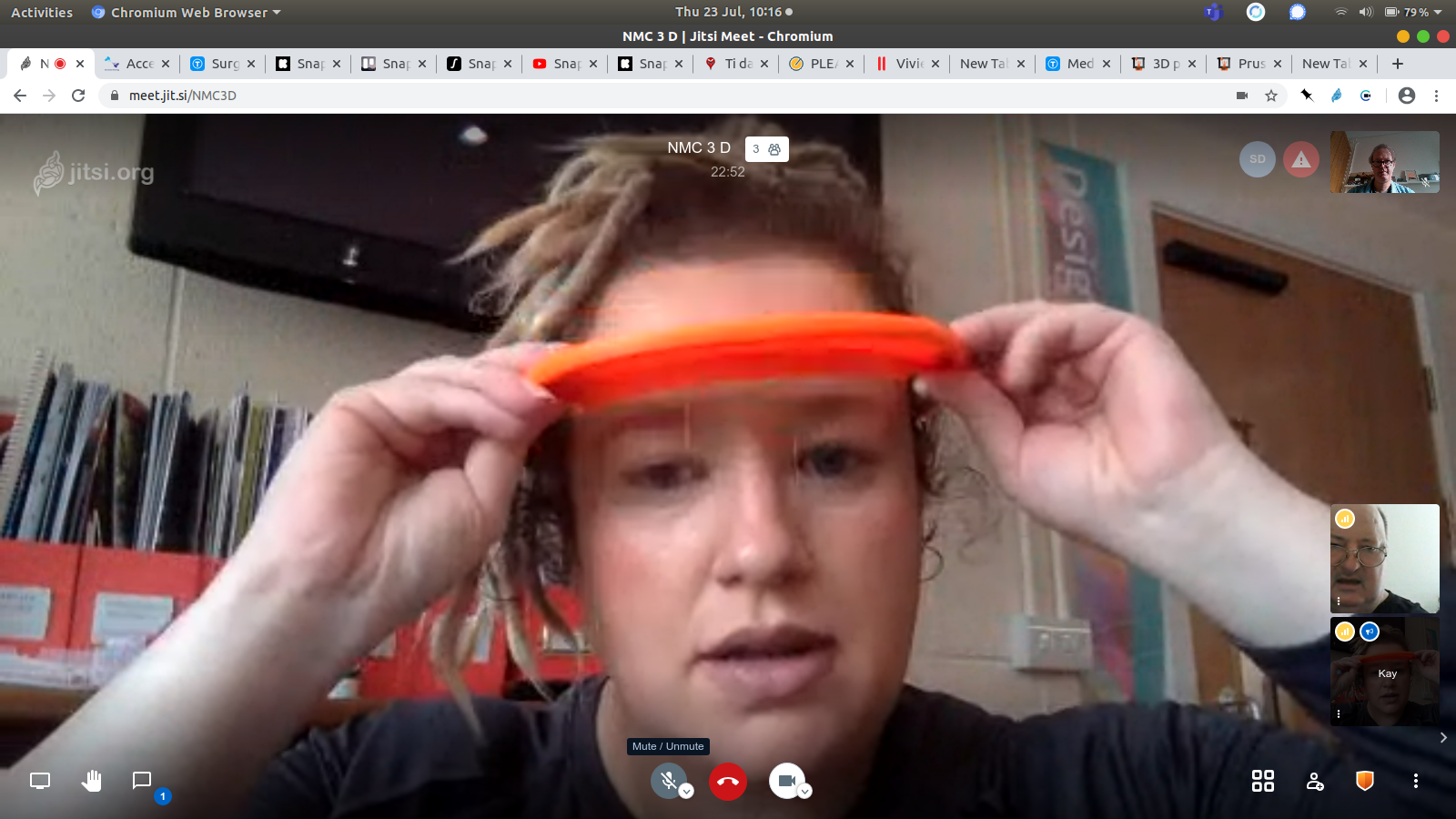
A Printer Of Our Own
After much discussion 2 of us decided to buy an Ender 3 printer, a much cheaper alternative to Prusa, after Ross managed to get a long term loan of an older Ender printer from technologist Adrian McEwen
It's been a long and fascinating journey modifying and learning how to get an Ender3 printing well. You can see the results today on the tables


This is Raul Krauthausen a teacher & activist in Berlin who was one of our first references. He made some portable 3D printed ramps to help him get around Berlin and draw attention to things society might need to change. Society changed the entire surface of the planet to make cars work why not other vehicles?
He then published it on Thingiverse so other people can hack their pavements.
Hack Reality!


After working on face visors & PPE, the first things we designed for our own printers were simple modifications for things - from cooker hobs to missing parts. The main thing was that we designed everything socially online
Chris made a blanking plate for one of the rails on his wheelchair, while Paul made a modified joystick for his chair
Hacking NMC style!
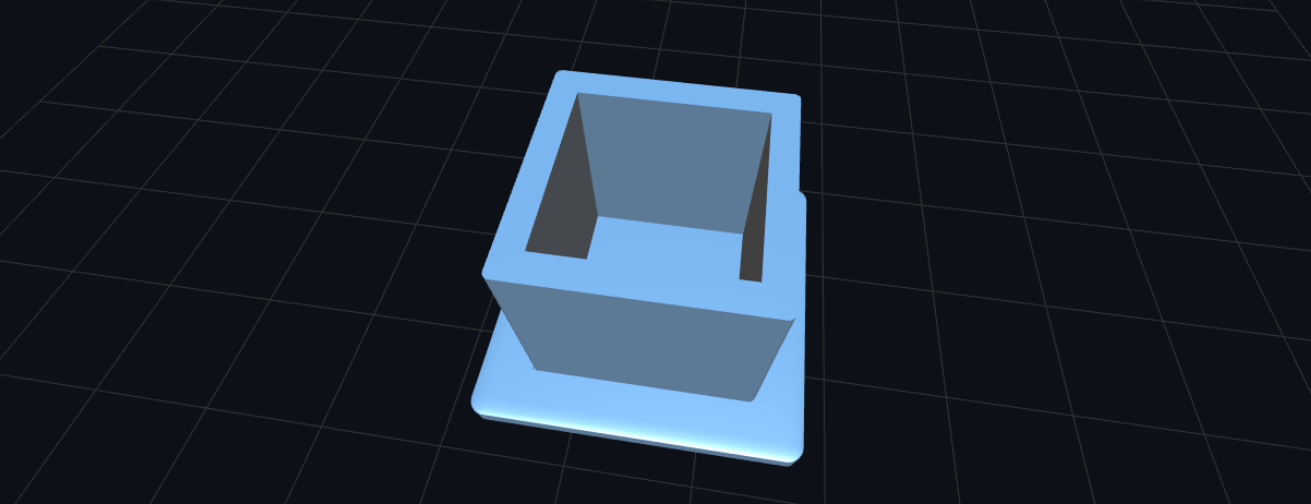
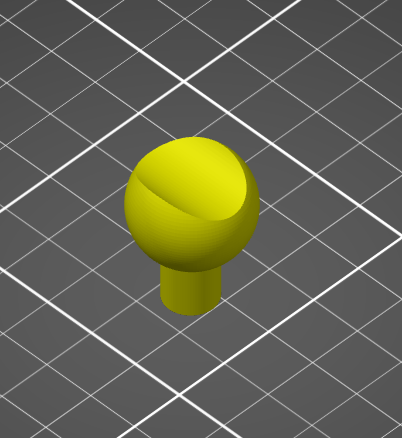

Designing Together
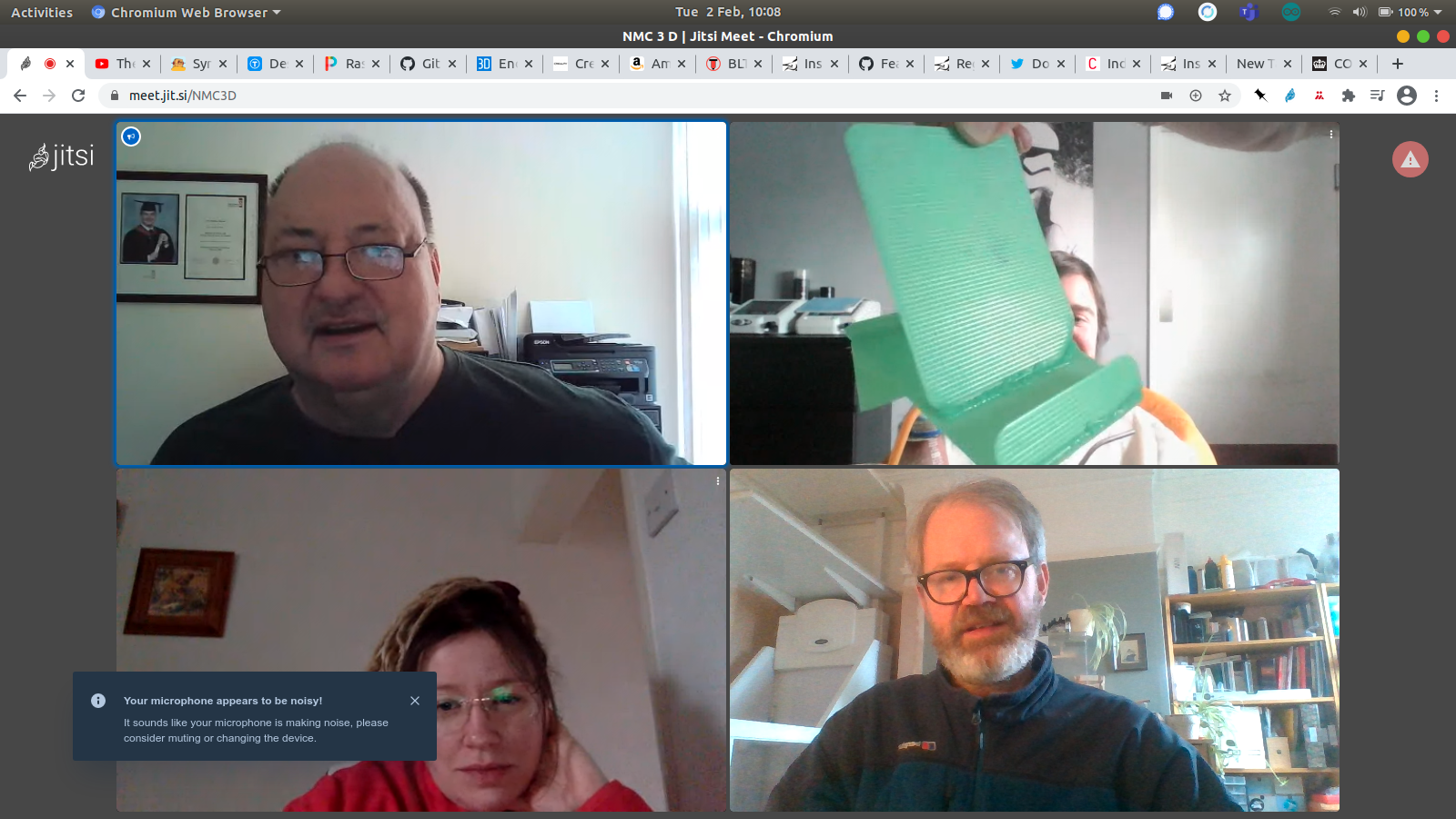
Designing Together
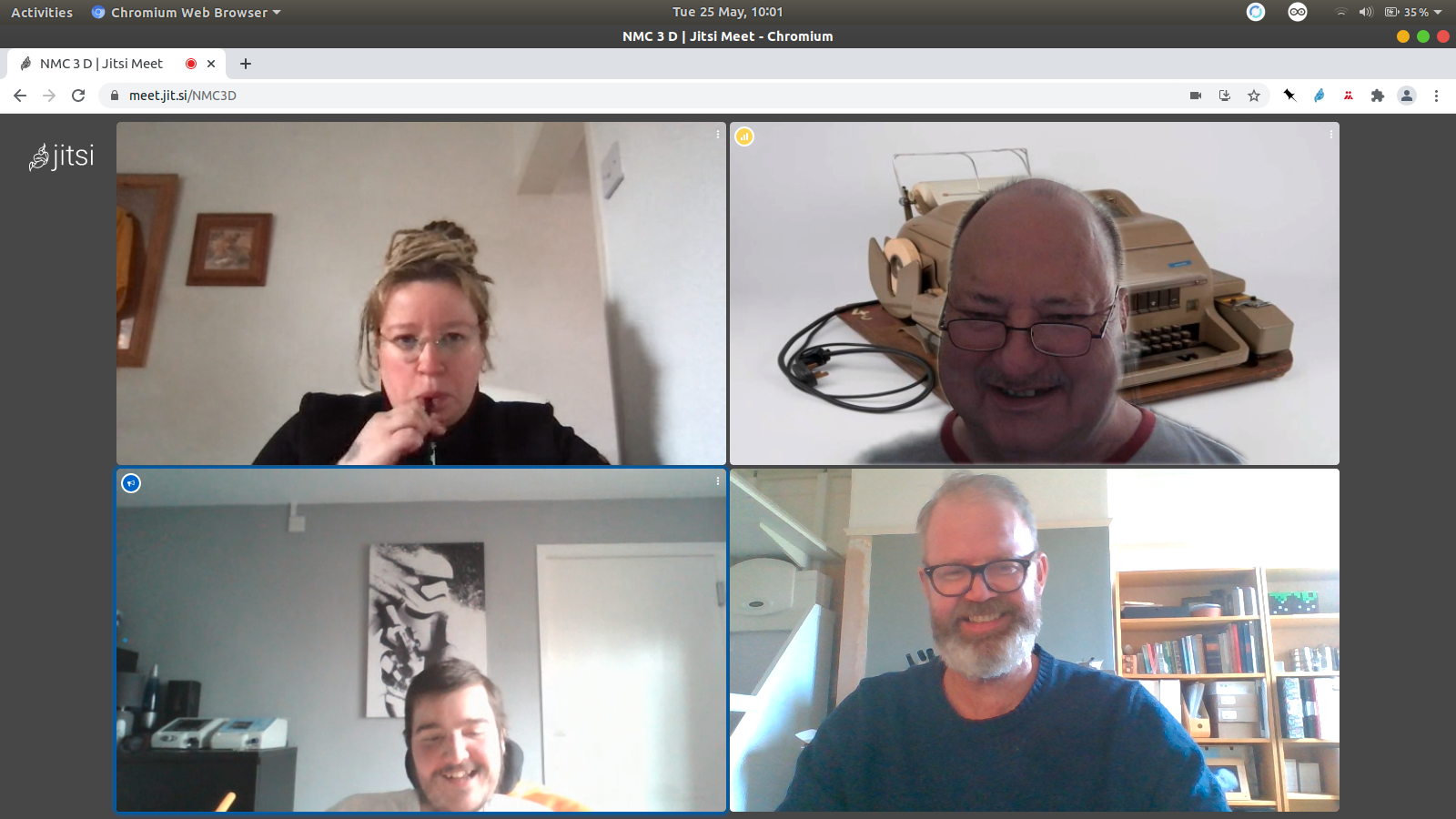
Designing Together
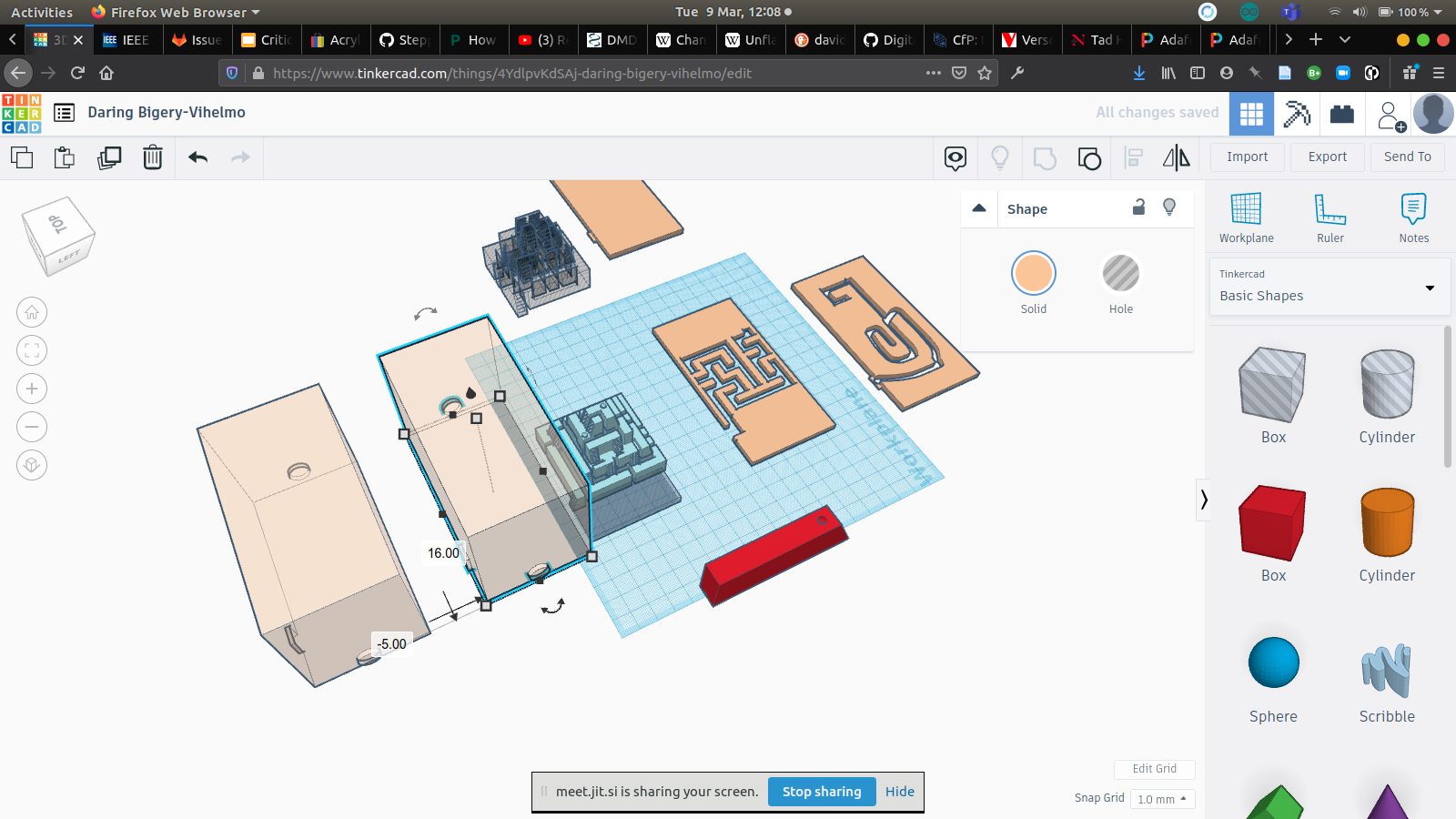
Designing Together
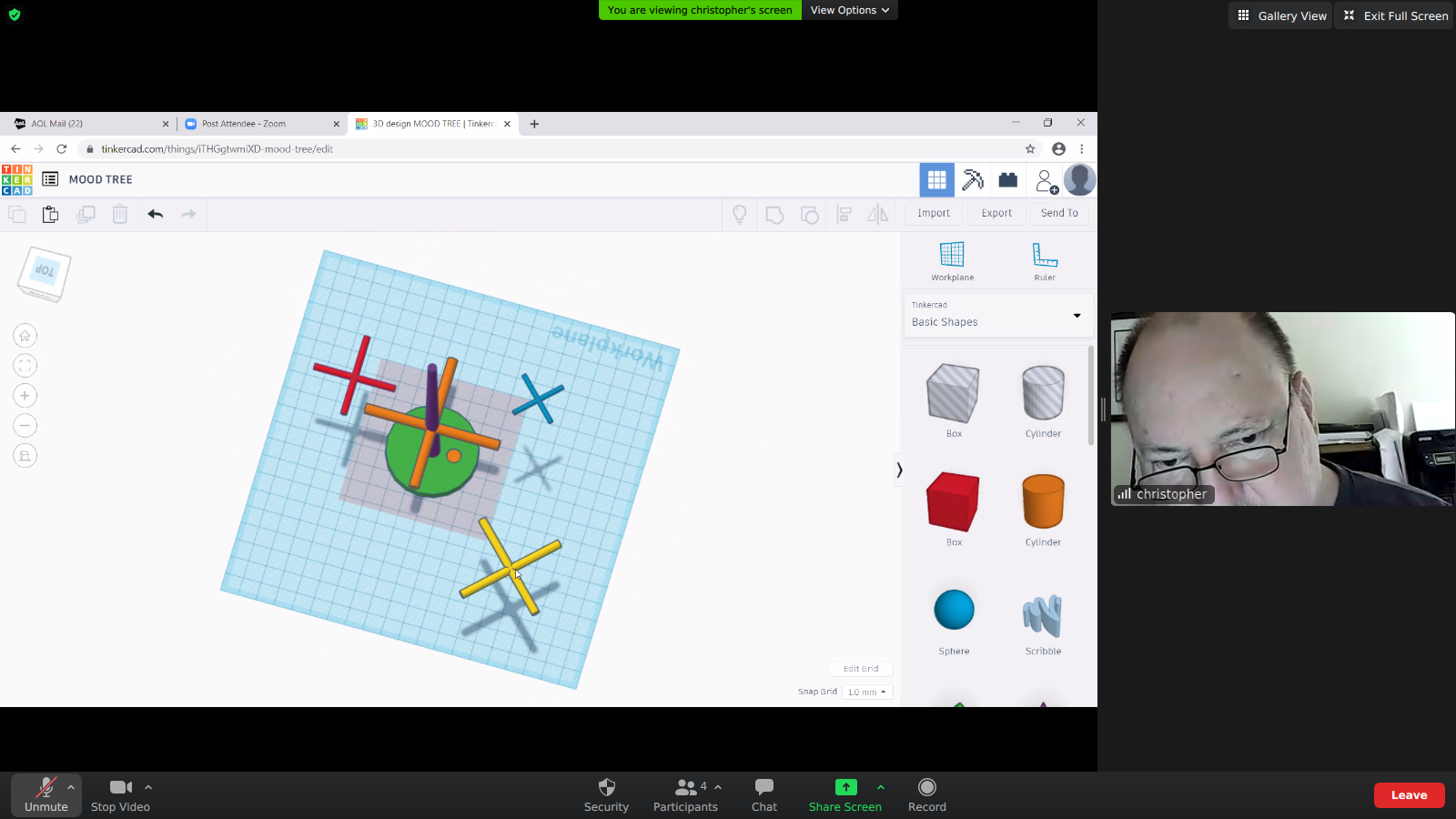
Designing Together
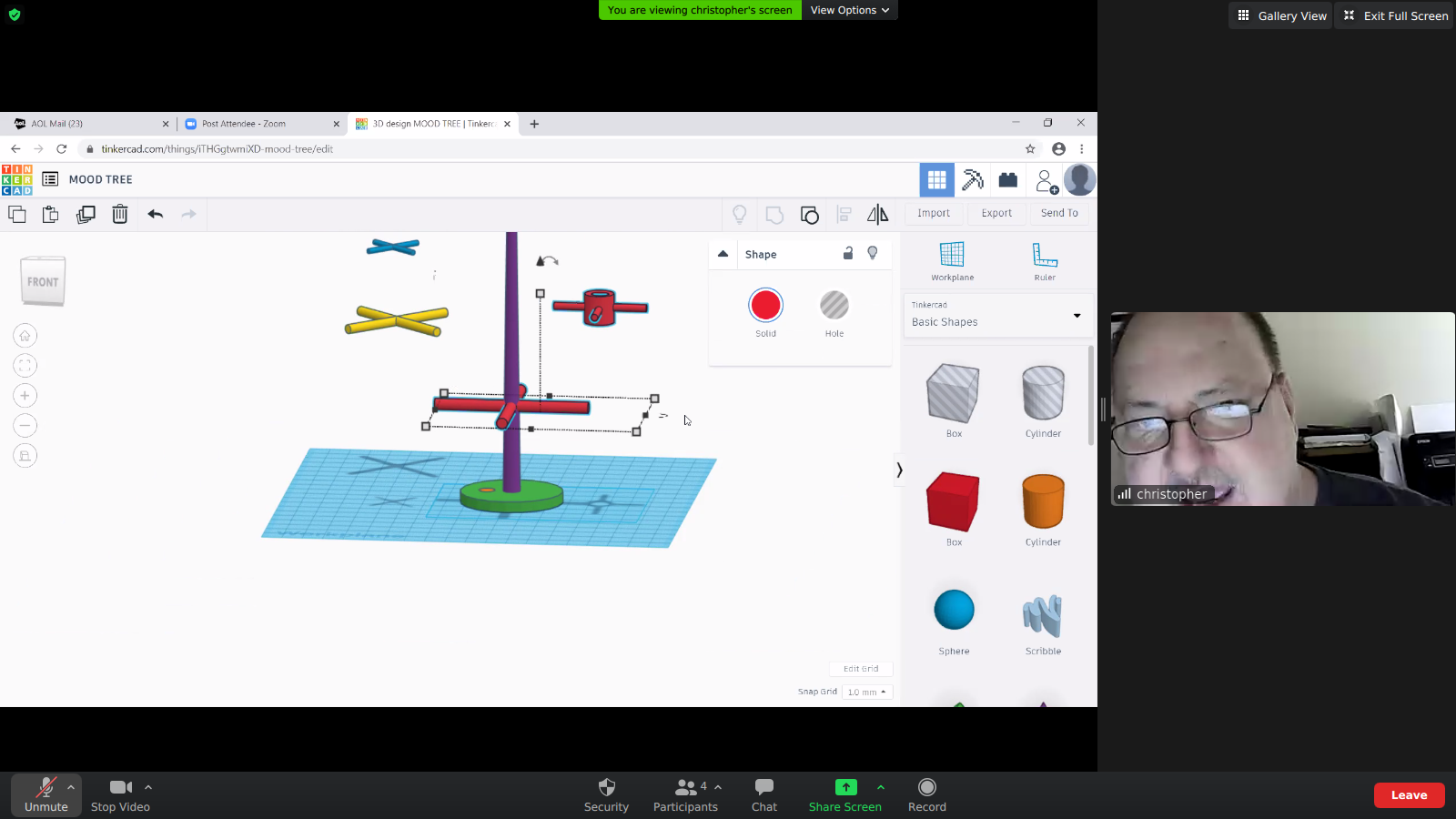
Supporting
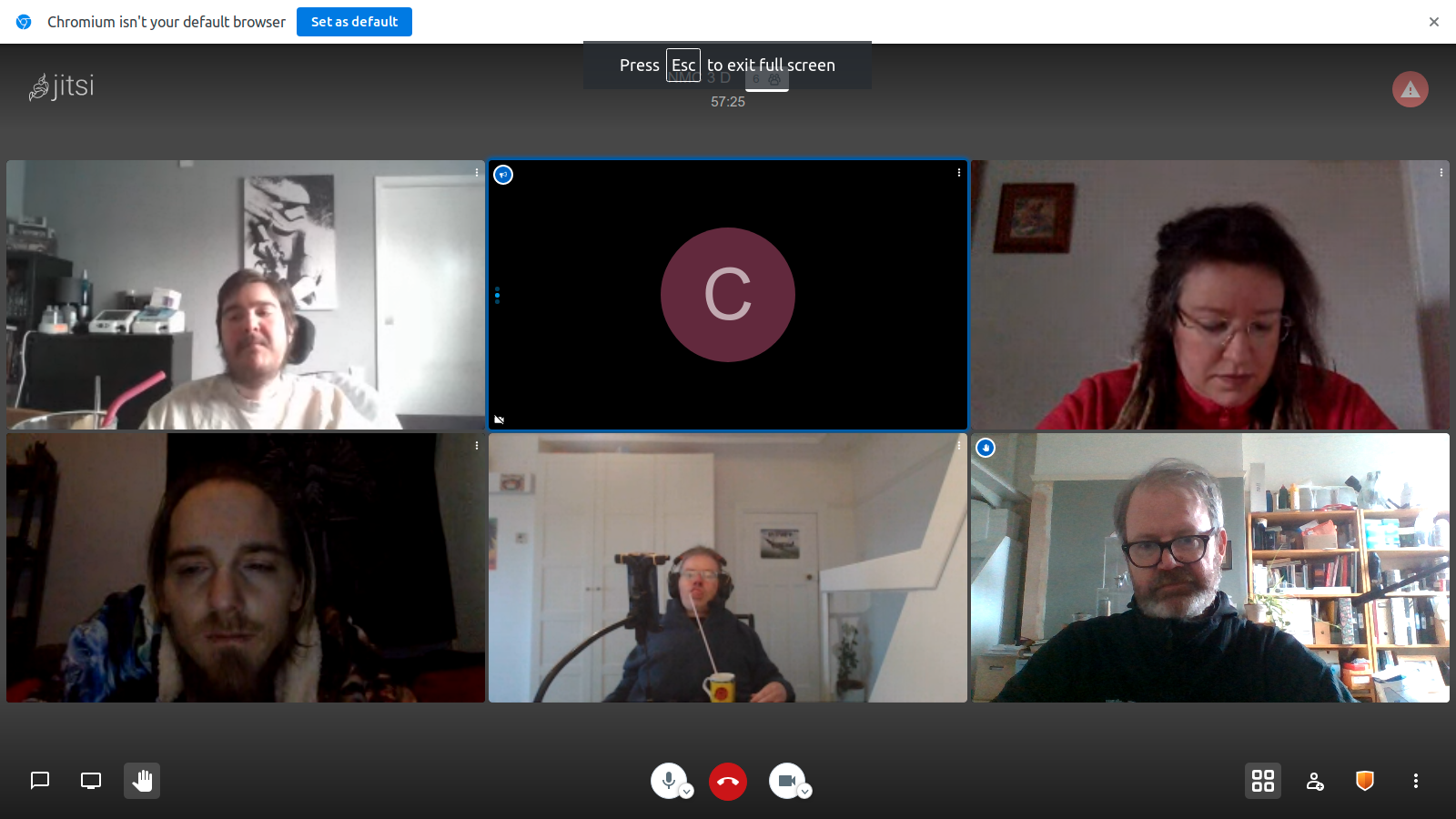
We worked with Ross and David Clancy a scientist at Lancaster University to explore how 3D printing was used in biomedical science
We made environments to observe fruit flys, Drosophila melanogaster which scientists use as model organisms - the study of organisms with simpler genetic structure that can be analogous to human genetic conditions
Art-Science NMC style!
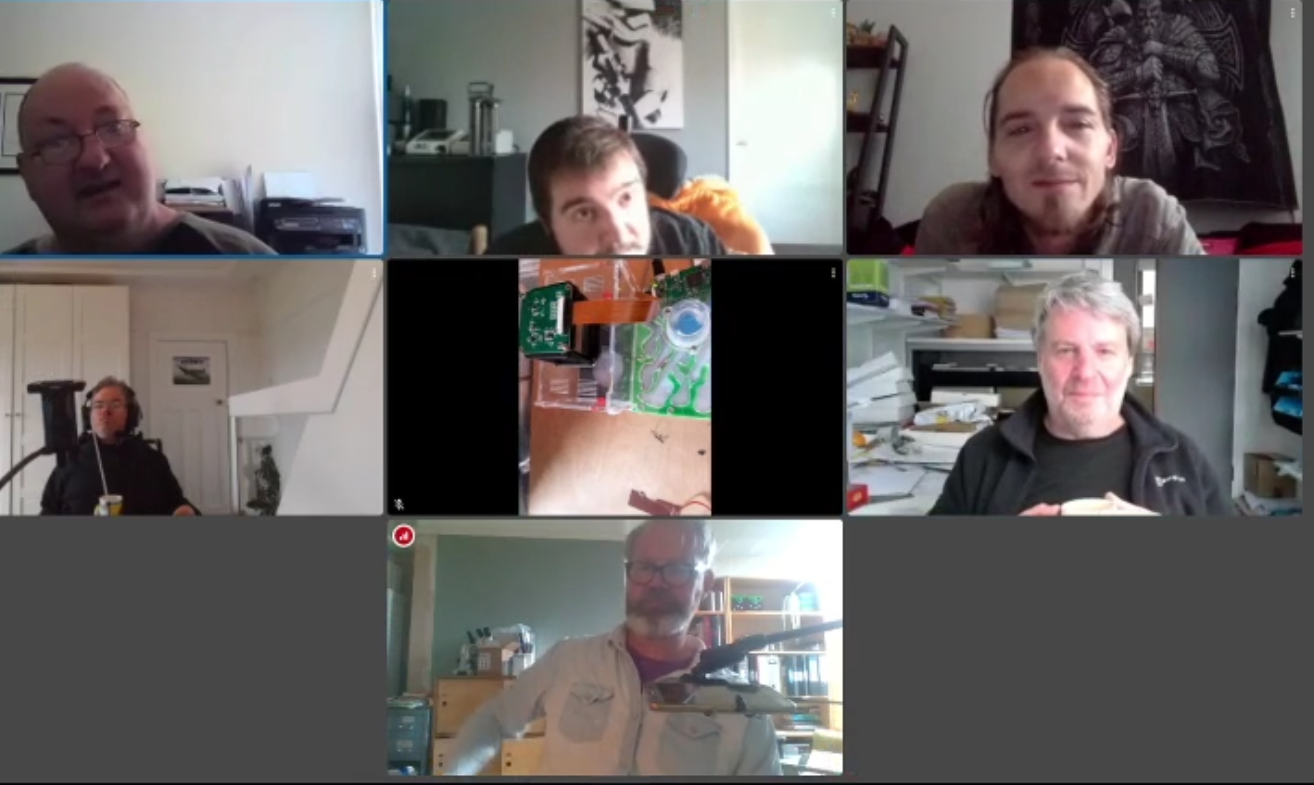
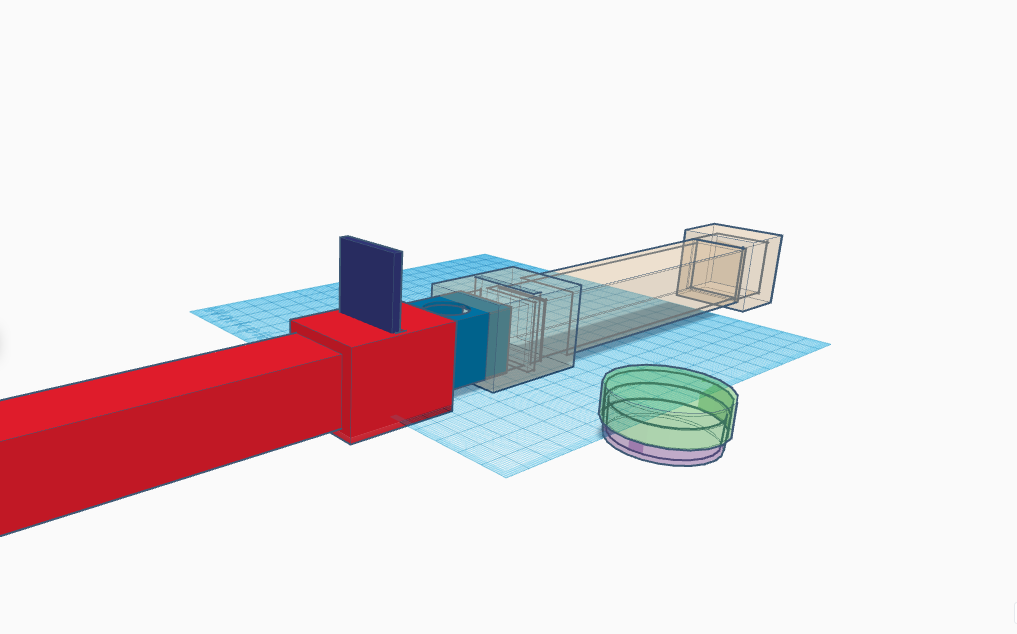
This project evolved into a kit to help explore what a 'genetic' condition really means.
From discussions together we observed how scientists who study & experiment with genetic conditions with model organisms and people who have neuromuscular conditions expressed in their body - develop intimate & complex knowledge about it - they care about it in interesting ways
FlyFarm Kits
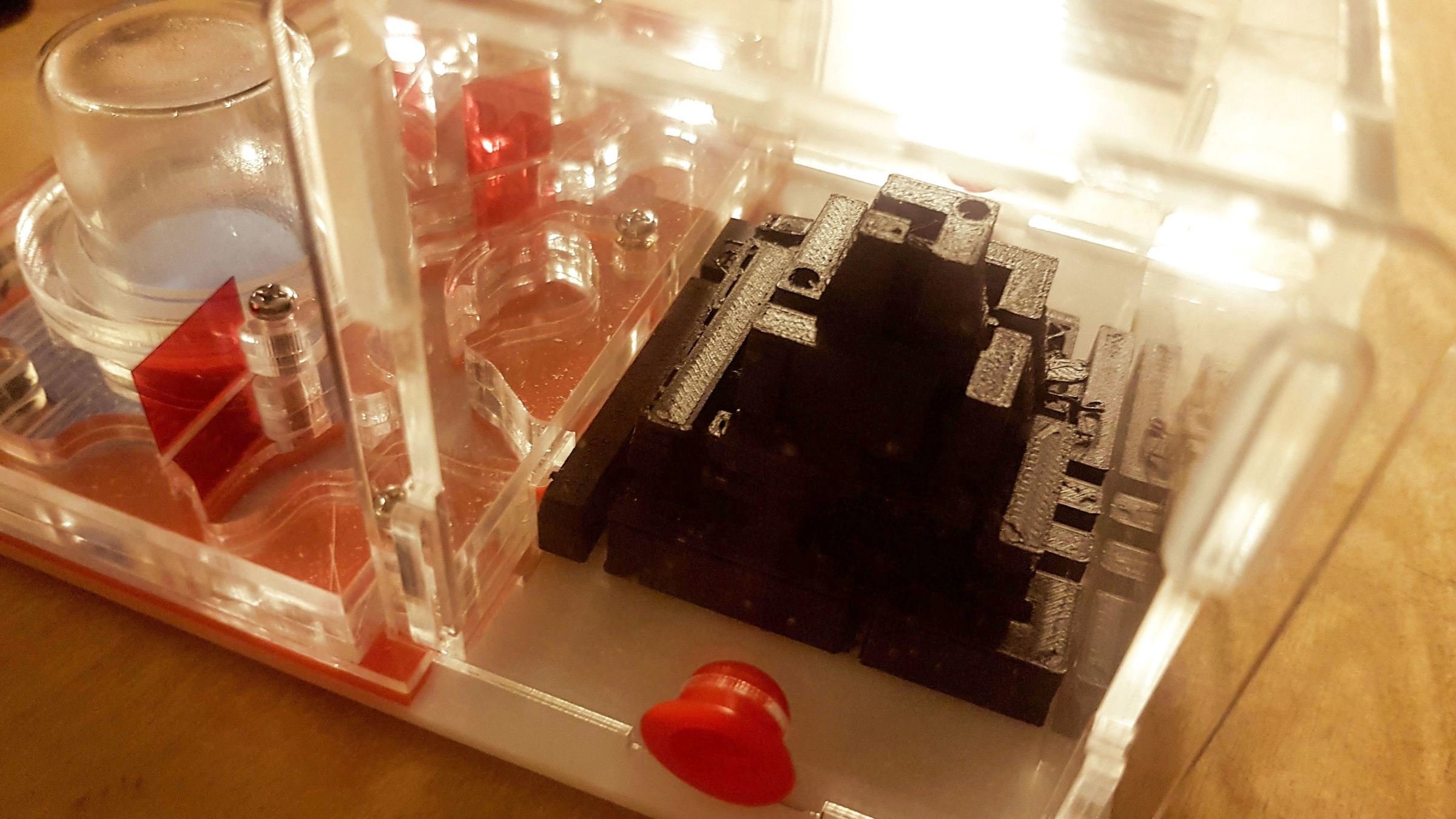

Other NMC Designs - Modular tripod

NMC Designs - iPad Holder
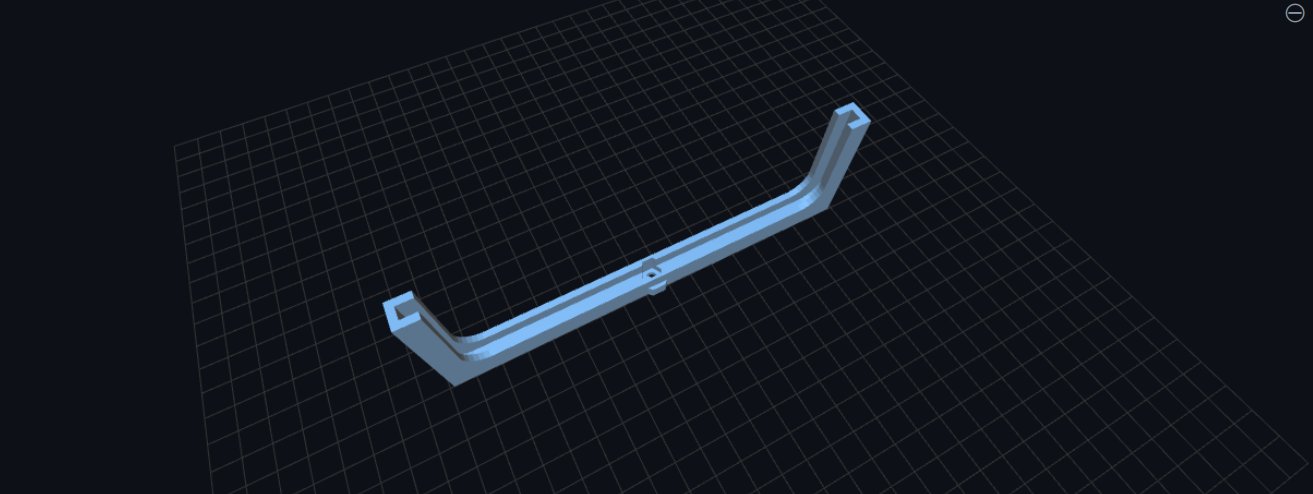

NMC Designs - Mood tree
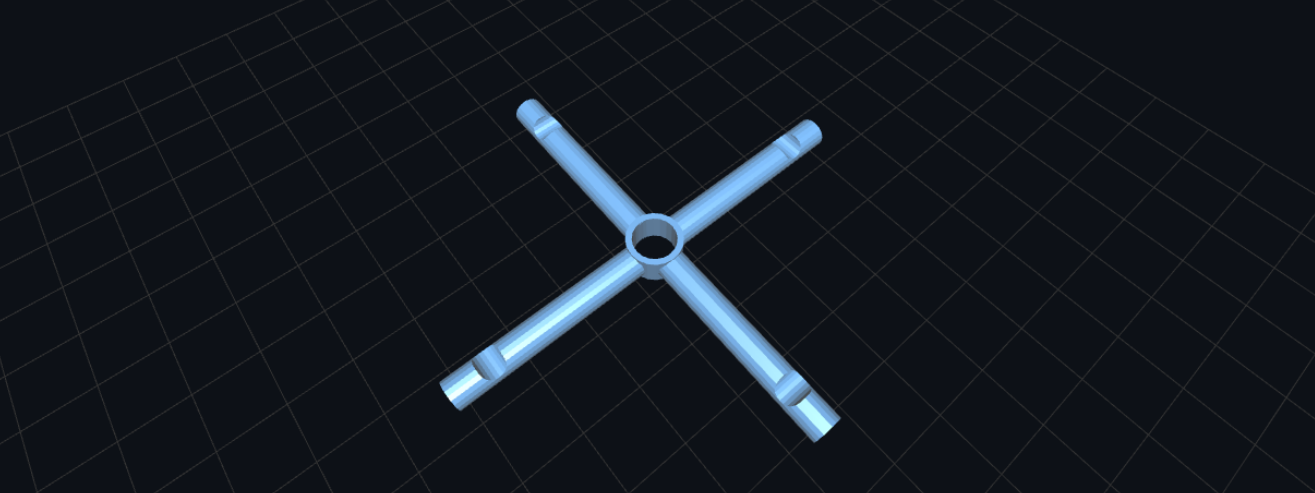
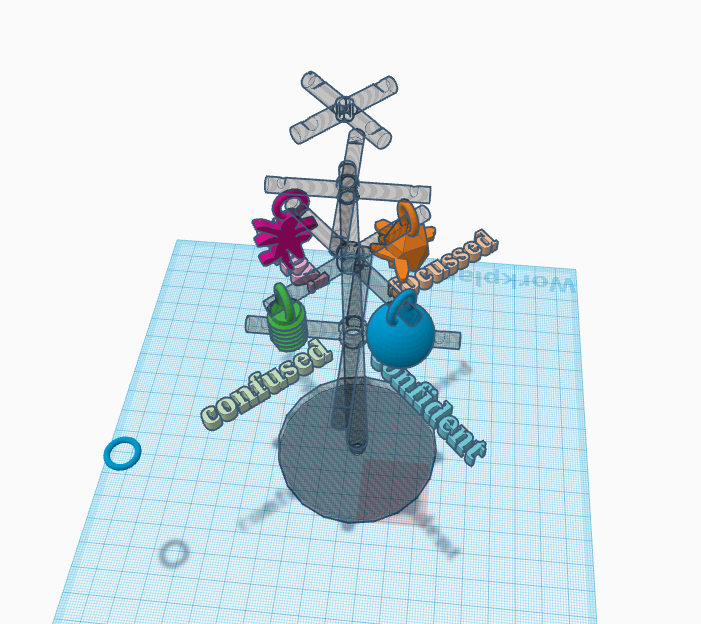
NMC Designs - Fly Experiments
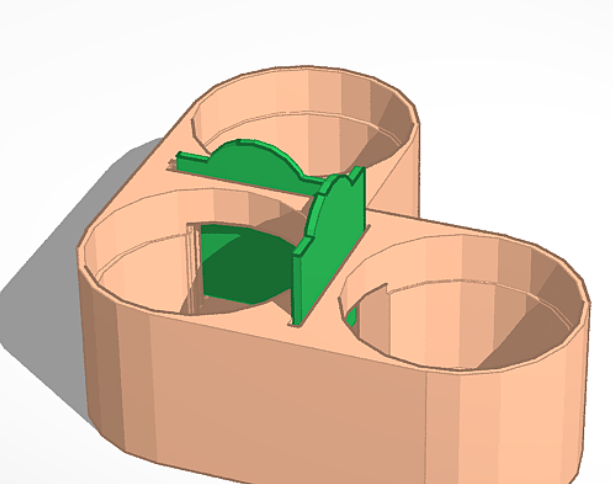
NMC Designs - Fly Experiments
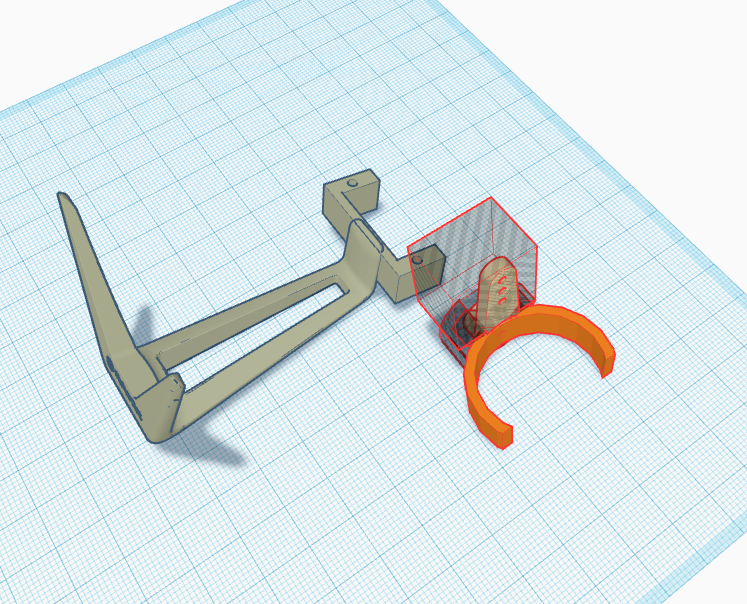
NMC Designs - Fly Maze
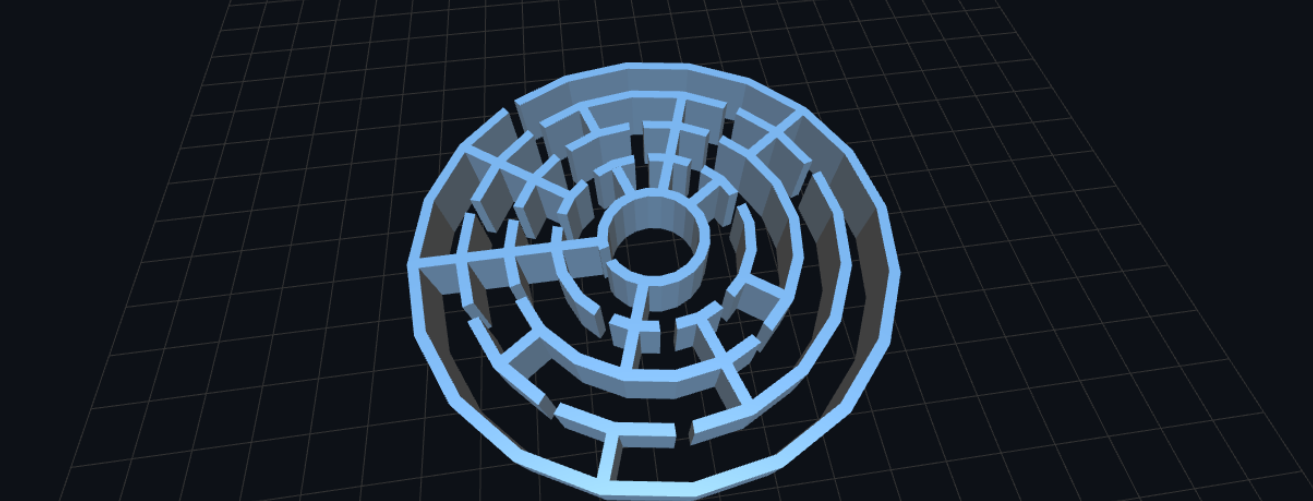
NMC Designs - Wax Extruder
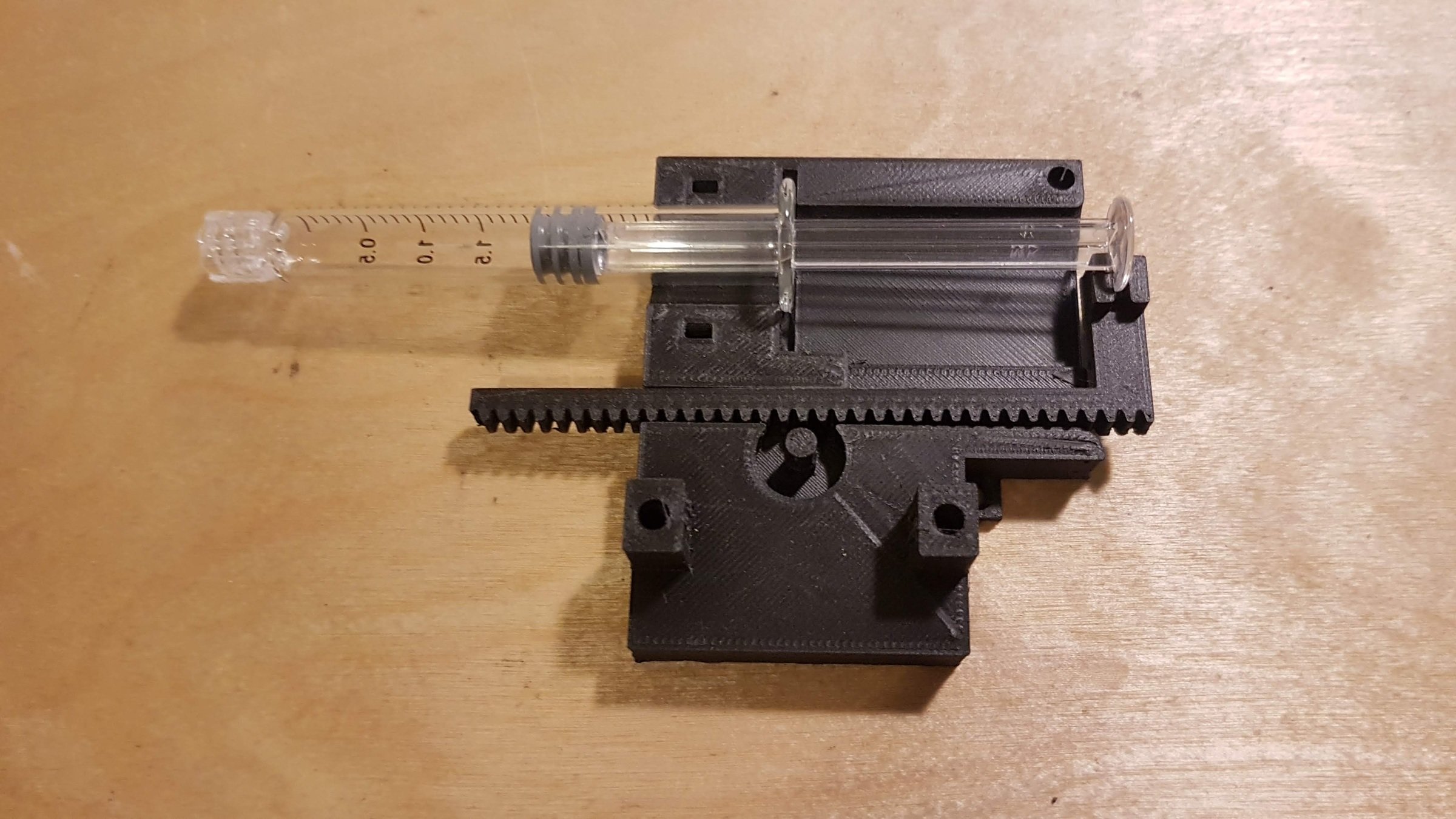
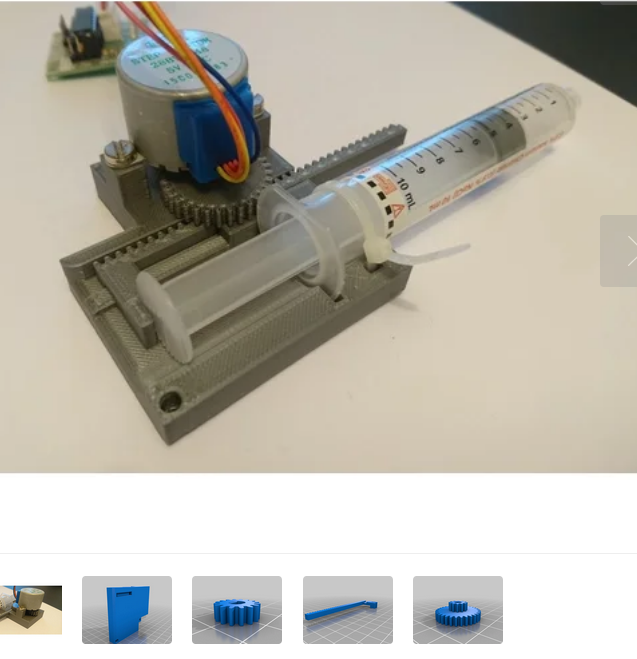

Weird extruding - Bio Materials
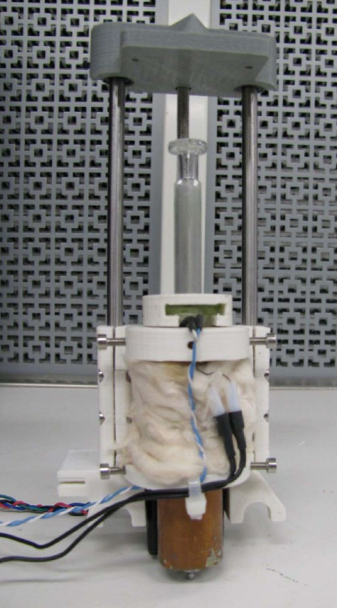
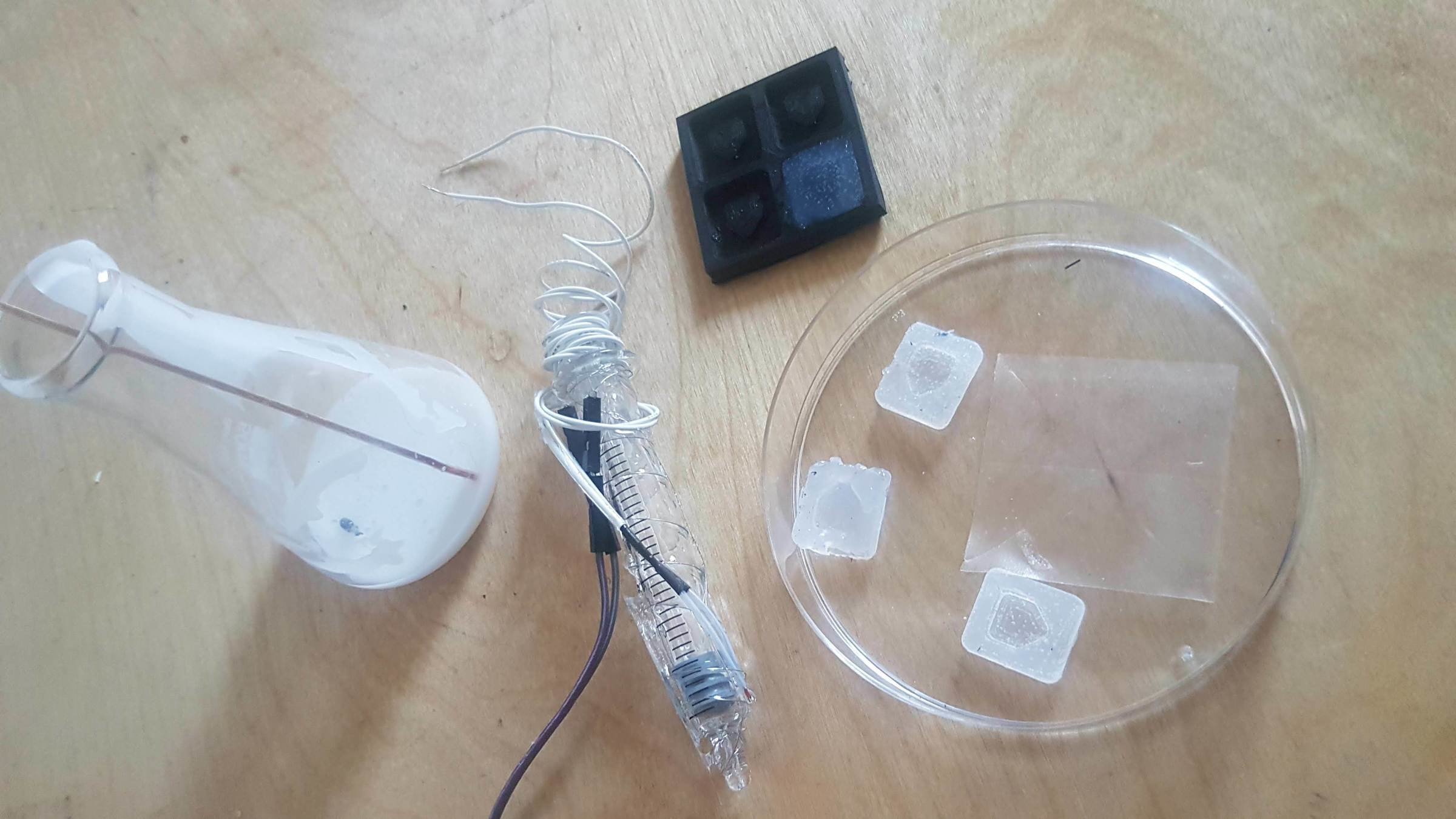
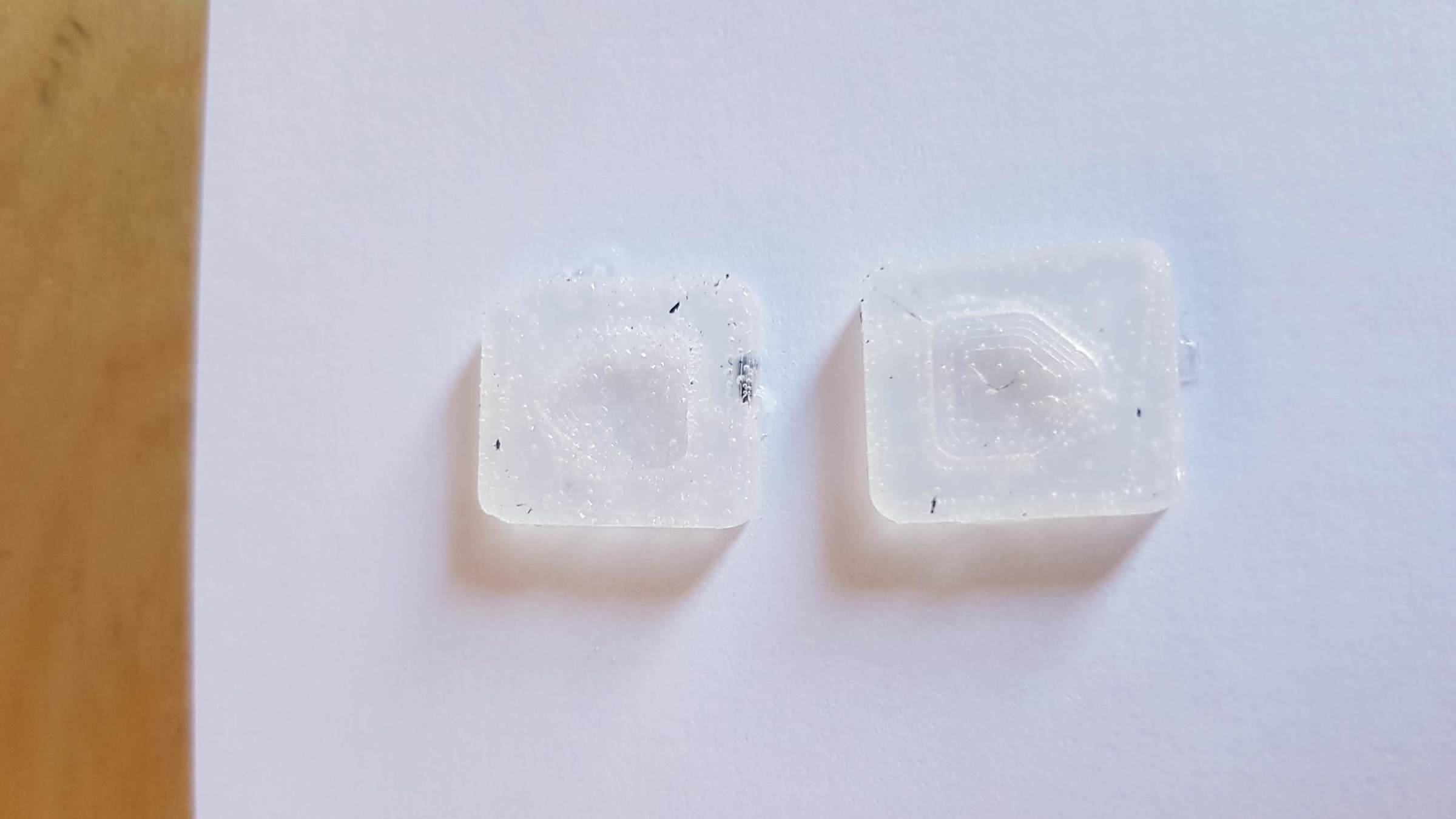
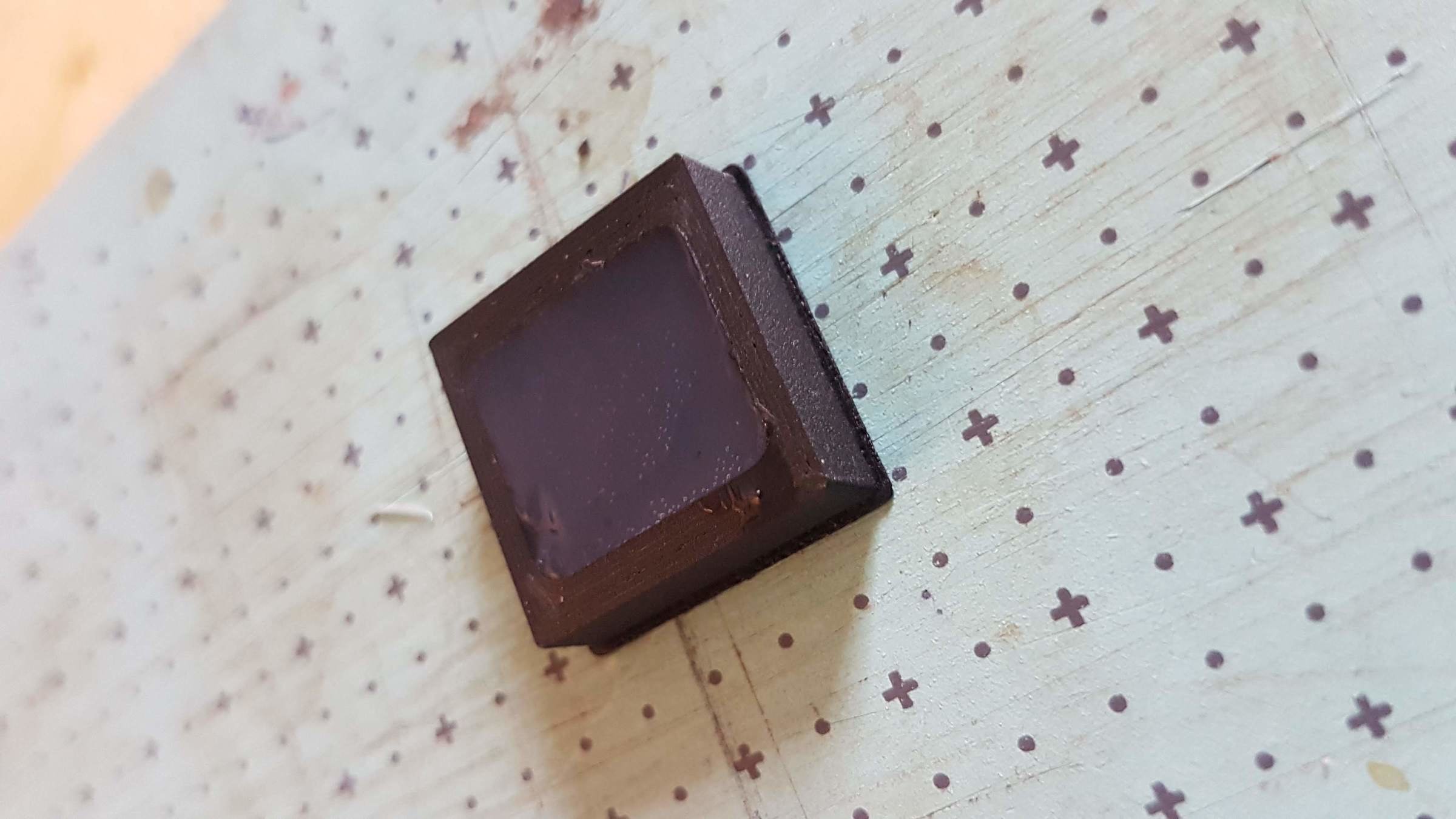
NMC Hacking Controllers

This project evolved into a kit to help explore what a 'genetic' condition really means.
From discussions together we observed how scientists who study & experiment with genetic conditions with model organisms and people who have neuromuscular conditions expressed in their body - develop intimate & complex knowledge about it - they care about it in interesting ways
NMC Hacking Ideas

